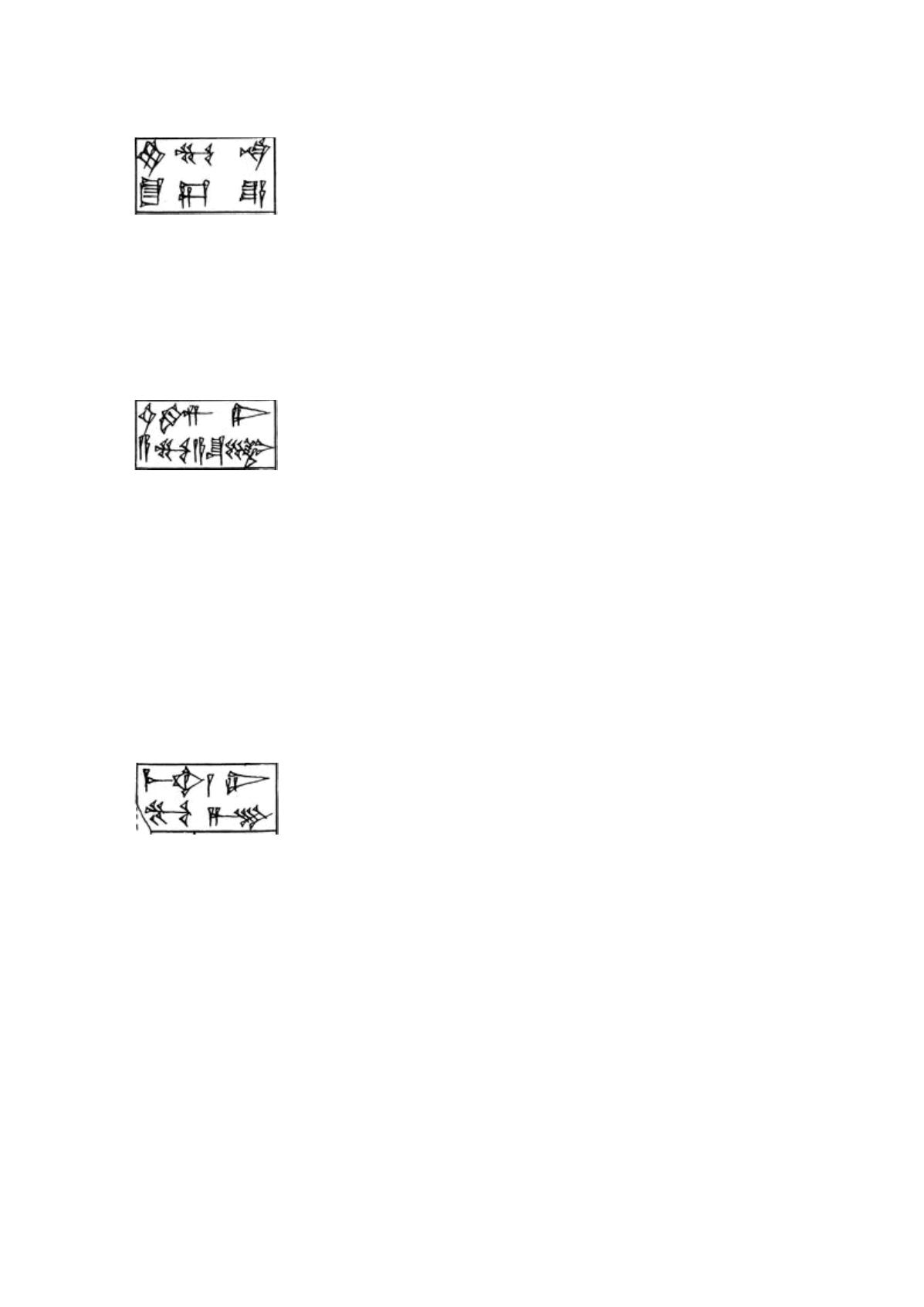

210
Gudea di Lagash – La costruzione del tempio di Ninjirsu - Cilindro A
A XVIII.2 - 484
šag
4
mu.na.hug.ge26
.e
šag
4
mu.na.hug.e
(Ninjirsu) il cuore pacifica.
mu.na.hug.e : vedi A VII.5; forma
marû
; “Gudea beruhigt sich im Hochsitz des Hohen Weges das Herz”
(GSG2.156); “er beruhigt sich das Herz” (GSG1.157; GSG2.98). Come visto, Falkenstein assume Gudea
come soggetto, mentre ritengo trattarsi di dativo. Il soggetto dovrebbe essere Ninjirsu, colui che risiede
sul trono di Girnun.
A XVIII.3 - 485
ud im.zal a
mu.tu 17
ud i
3
.mi.zal a
mu.tu 17
Al mattino fece un bagno
ud (u
4
)…zal (NI) : “die Tage vergehen lassen” (GSG1.125); “the day dawns; to spend the day; to elapse; to
waste time; to be late ('time' + 'to flow, pass')” (SL); cfr. A V.9. VI.10
i
3
.mi.zal : ‘Normalform’ “er verging” (GSG1.177), “er verging dabei” (GSG1.208); .mi (.m.i) deriva da .b.e
> .b.i. > .m.i. > .m, forma di terza persona singolare, classe delle cose, del DP del locativo-terminativo,
preceduto dal
prefisso pronominale opzionale
: se questo infisso segue immediatamente il CP i
3
, esso
assume la forma mi > m (GSG1.205-208). Lett. “passò il giorno e fece un bagno”
tu
17
[A.ŠU.NAGA] : è una variante di tu
5
[ŠU.NAGA] “to wash, bathe; to pour; to make libation (probably
reduplication class)” (SL); a…tu
5(17)
: “to bathe ('water' + 'to wash')” (SL); Falkenstein non traduce
A.TU5
(GSG2.84). Per il segno NAGA, usato per scrivere il nome della dea Nisaba/Nidaba, vedi A V.25,
XVII.15
A XVIII.4 - 486
me.te.ni.
mu.gime.te.ani.
mu.n.gie un vestito appropriato indossò (?).
me.te: “fitting thing; suitability; unique; ornament; proper dress ('function' + 'to meet')” (SL); “ce qui est
nécessaire, ce qui convien; ornement” (PLS.99); cfr. A II.1
mu.gi“er machte beständig” (GSG.166); “gi(n), ge(n) “festmachen” (GSG2.60); “to act justly; to stabilize,
strengthen; to confirm; to establish something as the property of someone (dative) (loanword from
Semitic, Akkadian
kânu
)” , agg. “just; firm; fixed; reliable, trustworthy” (SL); “ferme stable, durable;
devenir stable; affirmer, fixer; restaurer” (PLS.55). Lett. “il suo vestito appropriato rese stabile”
















